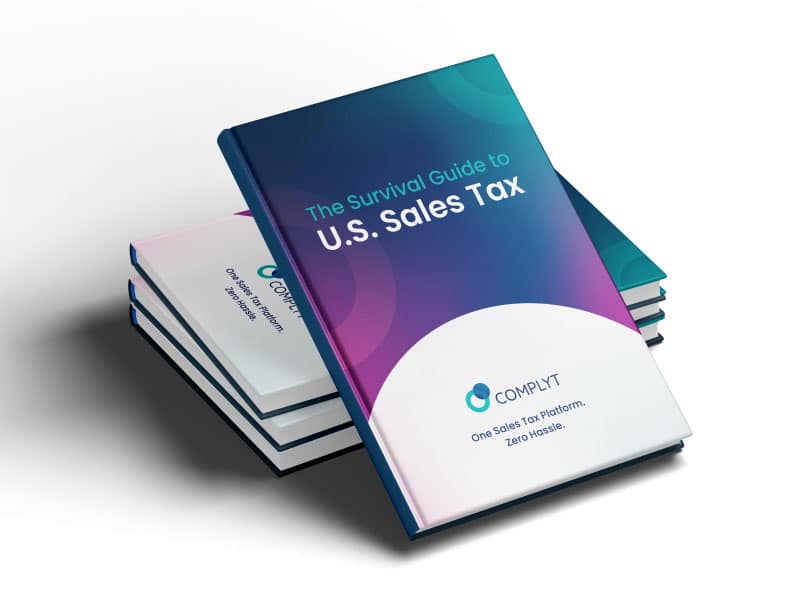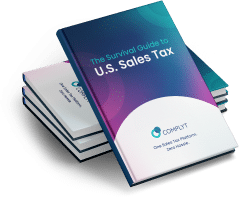What is the sales tax rate in New York?
As of 2023, the state sales tax rate in New York is a fixed 4%, with local taxes adding an additional percentage based on the locality, bringing the total sales tax up to between 7% and 8.875%. However, the sales tax rate can vary, so it’s crucial for businesses to stay updated on the latest figures.
Sales Tax New York: When should your business collect Sales Tax?
Your business should collect New York sales taxes if it has a physical or economic presence (nexus) in the state.
“But I’m a Jersey business, I don’t have a physical or economic presence in the Big Apple.” If that’s your line of thought, you may want to read on, because nexus triggers occur way quicker than many businesses realize.
What Constitutes a New York Physical Sales Tax Nexus?
The physical sales tax nexus involves your business’s physical presence in New York … in any shape or form. If your business has a physical store, office, or warehouse, employs people, or regularly conducts in-person sales in the state, you have a physical nexus.
Sales Tax Physical Nexus checklist for New York
To understand whether you have a physical nexus in New York, consider the following points:
- Does your business have a physical storefront in New York?
- Do you have an office, warehouse, or other property in New York?
- Are you employing residents of New York?
- Do you attend sales expos or trade shows in New York?
If you answered ‘yes’ to any of these, you likely have a physical sales tax nexus in New York.
The New York Economic Nexus Explained: Revenue, Thresholds and Transactions
New York State introduced the concept of “economic nexus” in 2019, following the Supreme Court ruling in South Dakota v. Wayfair. If your business makes more than $500,000 in sales and conducts more than 100 transactions in the state within the previous four quarters, you are considered to have an economic nexus in New York, and need to get compliant with the state’s sales tax laws.
Which services are taxable in New York?
In New York, most physical goods are taxable, while services are generally exempt unless specifically mentioned by the tax code.
Examples of taxable services include:
- Installation, repair, maintenance, and renovation of personal property
- Interior decorating and design
- Protective and detective services
- Parking, garaging, or storing motor vehicles
For a comprehensive list of taxable services, you can visit the New York State Department of Taxation and Finance website.
What About New York Sales Tax on Products? How to Calculate What Your Business Should be Charging
In New York, the sales tax you charge depends on the location of the sale. This means you need to find out what a specific jurisdiction’s local sales tax is and add that to the state rate of 4%. So if you’re doing business in New York City, you need to add 4.5% local tax rate to the 4% state rate, as well as an additional 0.375% because it is within the Metropolitan Commuter Transportation District (MCTD). This leaves you with a total sales tax rate of 8.875%.
Fortunately, you don’t have to calculate it manually for each jurisdiction. The combined state and local sales tax rate can be calculated using the tax rate lookup tool provided by the New York State Department of Taxation and Finance.
How does the New York clothing tax affect my business?
Calculating sales tax on clothing sales depends entirely on the purchase price of the items in question. In New York, clothing and footwear sold for less than $110 per item/pair is exempt from sales tax. Products sold for a purchase price of higher than $110 are subject to the full sales tax rate of up to 8.875%.
New York Online Sales Tax: Are SaaS and Digital Services Taxable?
In New York, digital products, including software as a service (SaaS), are subject to sales tax. New York is one of the states leading the way in online sales tax compliance measures. Considerations such as New York SaaS sales tax need to be on your compliance checklist when doing business in the state.
Does my Business Need to Charge Sales Tax for SaaS in New York?
Yes, if your business sells SaaS products to customers in New York, you are required to collect sales tax. However, there is still little conformity in the way SaaS is taxed across separate counties, so businesses need to pay careful attention to where their product is used and sold.
How does my business apply for a sales tax permit in New York?
A business can register for a sales tax permit in New York directly on the New York State Department of Taxation and Finance’s website. While staying compliant and keeping track of transactions may be a complex journey, most states have made it super simple to get sales tax permits to encourage businesses to get compliant.
Collecting Sales Tax in New York as a Business
Collecting sales tax involves knowing the applicable rates and remitting the collected taxes to the state. Regular filings are also required, with the frequency depending on the business’s sales volume.
New York Tax Return Due Dates Explained
Sales tax returns are generally due annually, quarterly, or monthly, depending on the business’s sales volume. The specific due dates can be found on the New York State Department of Taxation and Finance’s website.
What is the required frequency for sales tax returns in New York?
The frequency of filing sales tax returns in New York is typically determined by the volume of your sales. Businesses with a higher sales volume may need to file returns more frequently.

